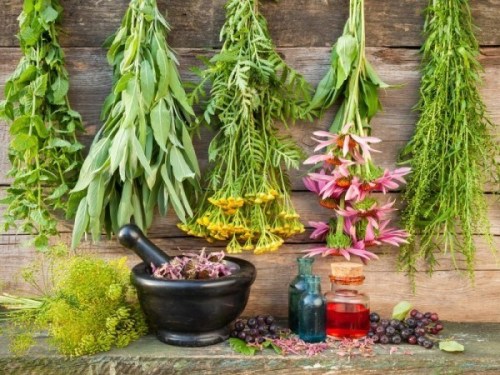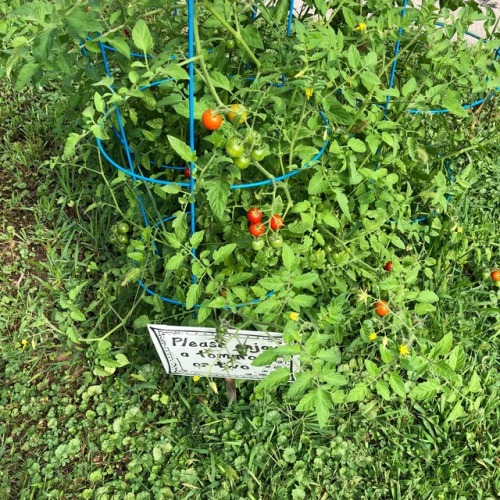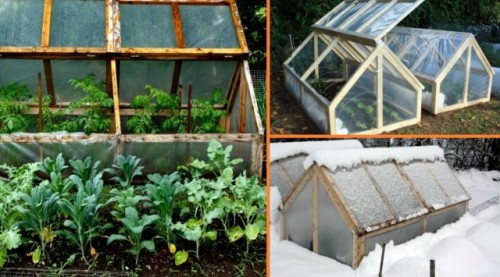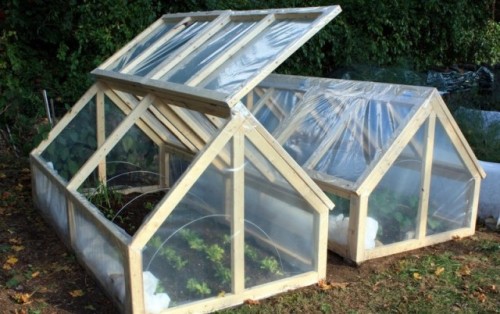Basil, How To Grow More Than You Can Eat - Gardening At 58 North
Basil, How To Grow More Than You Can Eat - Gardening at 58 North
~~~
Things I learned today #6
You can buy a single basil plant for around $5 or less, and take cuttings forever. Basil is an amazing plant and can be used for a lot of things! Including pesto, which you can make at home with a morter and pestal! (https://youtu.be/6-dOZezSwwM)
More Posts from Copperfingertips and Others
How about a Solarpunk moodboard 🌻🌍

solarpunk……good
solarpunk moodboard for anon

Tis the season of mass consumption. One of my friends was telling me about how her grandmother used to save old holiday cards to make name tags for presents. Seemed pretty solarpunk to me. Thought I’d share.
7 reasons why solarpunk is the most important speculative fiction movement in the last 20 years
It’s hopeful. Solarpunk doesn’t require an apocalypse. It’s a world in which humans haven’t destroyed ourselves and our environment, where we’ve pulled back just in time to stop the slow destruction of our planet. We’ve learned to use science wisely, for the betterment of ourselves and our planet. We’re no longer overlords. We’re caretakers. We’re gardeners.
Scientists are heroes again. And not just physicists and astronomers. Knowledge of biology and earth sciences matter, they’re the building blocks for a future on Earth. Scientific literacy isn’t just for academics – it’s part of daily life. People know how the things they use work, and if they don’t, they can access that information.
It’s diverse. Solarpunk is rooted in using the environment, so it looks different in different places. Alternative energy is best when specific to place (I imagine geothermal, wind, tidal, and hydroelectric energy sources are still used in certain places) so no overarching government system is needed. Communities can organize themselves, taking their own location and needs and history into account. Brazilian, Inuit, Egyptian, Pacific Northwest, and New Zealand solarpunk can all look very different, but be unified in resourceful, intentional, low impact living.
Individuality still matters. In a post-scarcity society, ingenuity and self-expression are not sacrificed on the altar of survival. With solar power there’s no reason not to go off grid, if that’s what you want to do. Communities can self-organize. You can find a community that suits you, or go live by yourself if that floats your boat.
There’s room for spirituality and science to coexist. Solarpunk is rooted in a deep understanding and reverence for natural processes. There’s room for spirituality there, be it pagan, Buddhist, Sufi, Transcendentalism – anything. There’s so much to explore, from nature worship to organized monotheistic religions, and how they interact with solarpunk.
It’s beautiful. The most common solarpunk aesthetic is art nouveau, but again there’s room for diversity, incorporating art styles from multiple cultures in respectful, non-appropriative ways. The most important aspect of solarpunk aesthetic is the melding of art and utility. The idea of intentional living is strong in art nouveau, but it’s not the only art movement with that philosophy.
We can make it happen. Now. Earthships. Permaculture. Aquaponics. Algae lighting. Compostable products that turn into fields of flowers. Buy Nothing organizations. Tiny, beautiful, efficient homes. Solar power cells you can see through. That’s all happening now. Solarpunk is within our grasp, at least on a personal level. I’m not saying there aren’t still big, ugly infrastructures devoted to unethical consumption, but we can start to tear them down. We can build a solarpunk world with stories and small changes. And small changes lead to big changes. That’s the real beauty of solarpunk. It’s not a post-apocalyptic power fantasy. It’s not a wistful daydream, or an elite future only for physicists. It’s something we can work towards right now. It’s tangible.
Shit No One Told Me About My Period
I knew the basics before I got it, but I had no clue…
* The blood wouldn’t necessarily be red. When I first got my period, I spent a few min looking at my underwear wondering how I shit myself. I didn’t know the blood could look brown, or be thick.
* That tampons weren’t a good idea yet. I was 10 or 11 when I got my first period and physically smaller than an adult woman. My first attempt at inserting a tampon was very painful and unsuccessful. I wouldn’t use them until I was around 14 or so.
* That when you use pads the blood can get on your bottom and I’d have to occasionally clean off the toilet seat after using it.
* That getting your first period DOES NOT mean you’re fully developed and fully able to bear children. I could have technically gotten pregnant at that age, but I was still a child and pregnancy would have put my life in danger because I was still physically immature.
* That it wouldn’t be regular for another few years.
* That very painful cramping is NOT NORMAL once you reach your 20s and is cause for concern.
* That the blood and tissue you pass can look chunky or stringy and not like blood from a cut.
* That stress can halt your period for months BUT
* That doesn’t mean you can’t get pregnant
Feel free to add your own

A Practical Guide to Herbology
Lesson One: Medicinal Teas
When I was first starting out with herbology, I was living in a small village in Croatia with a total population of less than 100 people. We depended on homemade teas, salves and medicines to heal us since the nearest hospital was two hours away. We treated ourselves with the power of herbs, gifted to us by the Earth.
These days, we can purchase all the tools we need to grow both common and exotic plants. Dried herbs are also another good option, especially for those that cannot grow their own. And with these tools, we can craft our own medicines.
For the first lesson, I’m going to focus on something simple: the art of crafting medicinal tea.

Creating Tea Blends
When starting out with creating medicinal teas, it’s important to understand how each ingredient interacts with our bodies. Be sure that you’re not allergic to any of your herbs and that they won’t interact poorly with any prescribed medications that you’re on. For example, those who are diabetic should not take angelica root; folks who are allergic to ragweed should avoid chamomile.
Here’s a list of common herbs and their functions for the purposes of crafting medicinal teas:
Angelica Root: Soothes colds and flu, reduces phlegm and fever. (Do not use if you are diabetic)
Basil: Eases headaches, indigestion, muscle spasms, insomnia; reduces stress and tension
Blackberry Leaves or Roots: Reduces diarrhea
Catnip: Soothes teething pain, colic, diarrhea, indigestion, anxiety, insomnia. (May cause drowsiness. Avoid if on Lithium or sedatives)
Calendula (marigold): Reduces fevers, soothes indigestion, gastrointestinal cramps, flu; antiseptic. (May cause drowsiness. Avoid if on sedatives)
Cayenne Pepper: Soothes coughs, colds, arthritis (topical), nerve pain, fever, flu; expectorant. (Avoid taking with medications that contain Theophylline).
Chamomile: Reduces insomnia, anxiety, stress, fever, indigestion; aids with sleep and pain relief. (May decrease effectiveness of birth control pills and some cancer medications, may increase the effects of warfarin; avoid if you are taking medications for your liver)
Cinnamon Bark: Soothes sore throats and coughs; anti-inflammatory (Avoid taking with diabetes medications)
Dandelion Root: Detoxifying, aids digestion, relieves constipation, laxative. (Avoid if on antibiotics, lithium or water pills)
Dandelion Leaf: Mild diuretic, potassium-rich (Avoid if on medication for liver)
Elderberries: Wards off colds and flu
Ginger: Eases morning sickness, nausea, colic, indigestion, diarrhea, fever, sore throats. (Avoid taking with medications that slow blood clotting)
Ginkgo: Relieves anxiety, vertigo, tinnitus; improves circulation, helps concentration; helps PMS. (Avoid taking with ibuprofen or with medications that slow blood clotting; numerous medications have interactions with ginkgo so speak to your specialist before use)
Ginseng: Aphrodisiac, mild stimulant, boosts immune system. (Do not take with medications that slow blood clotting, and avoid taking with diabetes medications or with MAO inhibitors)
Goldenrod: Relieves gout and cramps
Lavender: Reduces anxiety, headaches, tension, stress, indigestion, IBS; antibacterial; antiseptic; disinfectant (May cause drowsiness; avoid if on sedatives)
Lemon balm: Relieves anxiety, cold sores, colic, insomnia, restlessness, indigestion; boosts memory (May cause drowsiness, avoid taking with sedatives)
Nettle: Reduces hay fever and arthritis; diuretic. (Avoid taking with diabetes medications, medications for high BP, sedatives, medications that slow blood clotting, and lithium)
Peppermint: Relieves nausea, anxiety, indigestion, IBS, colic, diarrhea, fever, coughs, colds; anesthetic (Avoid if you have acid-reflux disease; avoid taking with cyclosporine; avoid if on liver medications)
Pine Needles: Expectorant; antiseptic; relieves coughs, colds, fever and congestion
Rosemary: Improves focus, memory, concentration, BP, circulation; antiseptic; antidepressant; eases indigestion
Thyme: Antibacterial, antiseptic, eases coughs and colds, expectorant (Do not take with medications that slow blood clotting)

Recipes
For those starting out, here are a few recipes for common ailments. As you start making your own teas, you’ll learn which blends of herbs work best for your body. Keep track of which ingredients and combinations are successful - with each steep, you get closer and closer to crafting your perfect personalized medicine cabinet.
Anxiety Relief - ½ tsp chamomile - ½ tsp lemon balm Cold Relief - ½ tsp elderberry flower - ½ tsp thyme Mood Booster - ½ tsp lavender - ½ tsp catnip - ½ tsp rosemary Cramp Relief - ½ tsp basil - ½ tsp calendula (marigold) - ½ tsp goldenrod Indigestion Relief - ½ tsp ginger - ½ tsp lemon balm - ½ tsp peppermint Expectorant - ½ tsp pine needles - ½ tsp nettle leaf - ½ tsp angelica root Insomnia - ½ tsp chamomile - ½ tsp catnip - ½ tsp lavender Sore Throat Relief - ½ tsp cinnamon (or half a stick) - ½ tsp ginger - 1 tbsp honey Fever Break - ¼ tsp cayenne pepper - ½ tsp angelica root Flu Relief - ½ tsp calendula (marigold) - ½ tsp lemon balm
—————————————————————————–
Photographs are under the Creative Commons License. Content is from my grimoire and is embedded with information from a variety of sources over the years.
Updated 7 March 2018 with relevant warnings and to be consistent with other posts in this series.
Warnings: All plant material should be sourced appropriately and responsibly for your own safety and well-being. Be certain that you are purchasing food-grade ingredients from a reliable retailer or supplier. Along these lines, not all dried herbs are meant for consumption so please be on the lookout for “external use only” labels - you do not want those products for this.
Do your own research regarding medicinal plants and usage, especially if you are sensitive or have allergies of any kind. If you are on medication(s), consult a doctor before use.
Finally, medicinal teas are a health supplement and not a substitution for professional medical and psychiatric aid. If you are experiencing any prolonged health and/or mental health issues, SEE A DOCTOR.
Fun fact, hammering metal spikes into tree trunks is a federal crime in the US because environmental activists used to do it in the 80s to fuck up chainsaws and logging equipment.


an adorable sign i saw on my morning walk !! 🍅
How anarchist organizers in rural Puerto Rico rebooted their power grid after the privatized power company abandoned them

After being hammered by hurricane Maria, the residents of the rural Puerto Rican mountain town of Mariana got tired of waiting for the bumbling, privatized, cash-starved power authority to reconnect them to the grid, so the anarchist organizer Christine Nieves founded Proyecto de Apoyo Mutuo, one of a dozen-odd cooperatives across the island to create their own solar grid; by the time the The Puerto Rico Electric Power Authority finally put in appearance, Mariana had had power for two whole months.
After Maria, Puerto Rico suffered the second-longest blackout in world history, ignored by both the federal government and the gutted, heavily privatized local government. So community organizers like Nieves took matters into their own hands.
Nieves’s group formed an alliance with the Katrina-inspired Mutual Aid Disaster Relief, which fundraised to send gear to Puerto Rico.
The island-wide efforts are rare bright spots in a year-long crisis with no end in sight. Naturally, they’ve faced police harassment and raids looking for “antifa.”
https://boingboing.net/2018/09/13/better-than-bounty.html
-
 renaultdunoir liked this · 2 years ago
renaultdunoir liked this · 2 years ago -
 thetraceface liked this · 2 years ago
thetraceface liked this · 2 years ago -
 bumblebeeappletree reblogged this · 2 years ago
bumblebeeappletree reblogged this · 2 years ago -
 bumblebeeappletree liked this · 2 years ago
bumblebeeappletree liked this · 2 years ago -
 enbeeengineer reblogged this · 5 years ago
enbeeengineer reblogged this · 5 years ago -
 gayfrogrights reblogged this · 5 years ago
gayfrogrights reblogged this · 5 years ago -
 blkdysnomia liked this · 5 years ago
blkdysnomia liked this · 5 years ago -
 executiveboardofmushrooms reblogged this · 5 years ago
executiveboardofmushrooms reblogged this · 5 years ago -
 greenthatsblue liked this · 5 years ago
greenthatsblue liked this · 5 years ago -
 pickledcarrotsandradish reblogged this · 5 years ago
pickledcarrotsandradish reblogged this · 5 years ago -
 racheljustcant liked this · 5 years ago
racheljustcant liked this · 5 years ago -
 somewierd1dgirl liked this · 6 years ago
somewierd1dgirl liked this · 6 years ago -
 moefoof liked this · 6 years ago
moefoof liked this · 6 years ago -
 fairy-onda reblogged this · 6 years ago
fairy-onda reblogged this · 6 years ago -
 vegan-lesbiab reblogged this · 6 years ago
vegan-lesbiab reblogged this · 6 years ago -
 dckay2 liked this · 6 years ago
dckay2 liked this · 6 years ago -
 copperfingertips reblogged this · 6 years ago
copperfingertips reblogged this · 6 years ago -
 abetterhigh liked this · 6 years ago
abetterhigh liked this · 6 years ago -
 dckay-blog1 liked this · 6 years ago
dckay-blog1 liked this · 6 years ago -
 fortunatefool liked this · 6 years ago
fortunatefool liked this · 6 years ago -
 bingles-the-fool liked this · 6 years ago
bingles-the-fool liked this · 6 years ago -
 aquatic-equestrian reblogged this · 6 years ago
aquatic-equestrian reblogged this · 6 years ago -
 aquatic-equestrian liked this · 6 years ago
aquatic-equestrian liked this · 6 years ago -
 deathlineoracle reblogged this · 6 years ago
deathlineoracle reblogged this · 6 years ago -
 catinabirdcage liked this · 6 years ago
catinabirdcage liked this · 6 years ago -
 anipgarden reblogged this · 6 years ago
anipgarden reblogged this · 6 years ago -
 anipwrites liked this · 6 years ago
anipwrites liked this · 6 years ago -
 cycloped1a reblogged this · 6 years ago
cycloped1a reblogged this · 6 years ago -
 possibly-pasta reblogged this · 6 years ago
possibly-pasta reblogged this · 6 years ago -
 possibly-pasta liked this · 6 years ago
possibly-pasta liked this · 6 years ago -
 profbenji reblogged this · 6 years ago
profbenji reblogged this · 6 years ago -
 bluhoo liked this · 6 years ago
bluhoo liked this · 6 years ago -
 medical-meanderings-blog liked this · 6 years ago
medical-meanderings-blog liked this · 6 years ago -
 sweetlyhauntedfire liked this · 6 years ago
sweetlyhauntedfire liked this · 6 years ago -
 life-tips-reblog reblogged this · 6 years ago
life-tips-reblog reblogged this · 6 years ago -
 solarpunkivy liked this · 6 years ago
solarpunkivy liked this · 6 years ago -
 letscomposttherich liked this · 6 years ago
letscomposttherich liked this · 6 years ago



